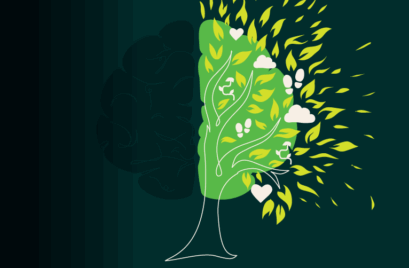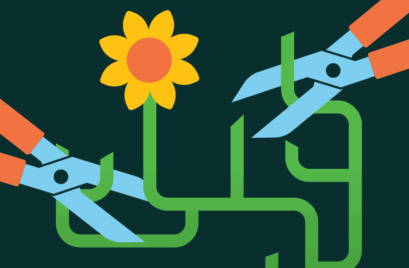
The pursuit of productivity is a golden opportunity to foster deeper satisfaction and joy for both managers and their teams. This goal is not merely aspirational; studies consistently show that highly engaged teams can be up to 21% more productive, directly linking positive employee experience with tangible business outcomes.
This article explores a more sophisticated, neuroscience-informed approach to enhancing team productivity and effectiveness, focusing on understanding human behaviour and the transformative power of strategic questioning. Based on recent breakthroughs in neuroscience, leaders now have new tools to navigate constant change, engage people rapidly, and align resources effectively, moving beyond outdated process efficiency methods.
The Australian Government’s Productivity Commission is currently undertaking a comprehensive inquiry into national productivity, aiming to identify key drivers and barriers to economic growth and improved living standards. This extensive review seeks to inform policy reforms across various sectors, ensuring Australia remains competitive and prosperous in the coming decades. Organisations with the foresight to proactivity maximise productivity will likely reap the rewards as policy reforms roll out in due course.
The shifting landscape of productivity
For too long, the focus on productivity has been narrowly defined by process efficiency, often to the point of diminishing returns. In 2025, true productivity extends beyond mere task completion; it encompasses employee engagement, adaptability, and the ability to form and re-form teams rapidly to deliver on key projects. Based on science, the human brain evolved primarily to manage complex social groups, not just advanced cognitive tasks.
This fundamental insight underscores why understanding human behaviour and social dynamics is paramount for cultivating high performing teams in increasingly complex workplaces that demand diverse skills and strong interpersonal abilities.
The neuroscience of high-performance teams
At its core, productivity is deeply tied to human needs and motivations. Based on neuroscience, fostering an environment where these needs are met is crucial for peak performance. This begins with establishing a sense of safety and belonging within the team, creating psychological security that forms the foundation for all other progress. Following this, enabling team members to process emotions and express their authentic selves is vital for genuine engagement. When individuals feel safe and heard, they are better positioned to embrace goal orientation and motivation. This involves setting clear objectives and celebrating both team and individual achievements, striking a balance that fosters excitement without leading to aggressive internal competition. Understanding people at this deeper level, focusing on their core needs, significantly increases performance and engagement.
The power of questions: Driving team effectiveness
In this human-centric approach, asking great questions becomes a powerful tool for leaders. Based on science, effective questioning serves multiple critical functions:
Information processing and critical thinking
Questions encourage team members to gather information, analyse data, and make informed decisions, fostering a culture of evidence-based problem solving. This helps teams to “see the facts” clearly.
Collaboration and empathy
By asking open-ended questions, managers can build stronger social bonds, foster collaboration, and enhance understanding within their teams. This cultivates “interpersonal connection,” allowing for diverse perspectives to emerge.
Task optimisation
Strategic questioning helps identify high-value tasks, assess their necessity, and pinpoint opportunities for delegation or elimination. This systematic activity review ensures that efforts are focused on contributions that truly enhance productivity.
Focus and clarity
When managers ask clarifying questions, they help team members achieve “one-pointedness”; a state where the mind is steadily held on a given task. This reduces external stimulation and sharpens focus, leading to optimal experience or ‘flow’ and astounding results.
Resource alignment and adaptability
Questions can facilitate rapid team formation and resource alignment, allowing managers to quickly adapt to new challenges and deliver on key projects.
Practical steps for leaders
To implement this neuroscience backed approach, leaders could:
- Shift leadership style: Move from a command-and-control approach to one that is more facilitative and inquiry-based, empowering teams to find their own solutions.
- Conduct regular activity reviews: Encourage teams to list all tasks, prioritise them, and assess their value contribution, identifying areas for elimination or delegation.
- Foster psychological safety: Create an environment where team members feel safe to express ideas, ask questions, and even challenge assumptions without fear of retribution.
- Celebrate success: Acknowledge and celebrate both individual and team achievements to reinforce positive behaviours and maintain motivation.
Looking ahead, sustainable productivity for Australian organisations hinges on a profound understanding of human behaviour, informed by neuroscience. By embracing a leadership style that prioritises meeting core human needs and leverages the transformative power of strategic questioning, middle managers can unlock significantly increased performance and much greater employee engagement. This human-centric approach is not just about working smarter; it is about building resilient, adaptable, and high-performing teams ready to shape a better future.
To support leaders to integrate strategic questioning into their leadership style, we have developed the ASK Toolkit, which provides a suite of helpful and practical resources to guide any leader to ask more questions to improve productivity and performance.






